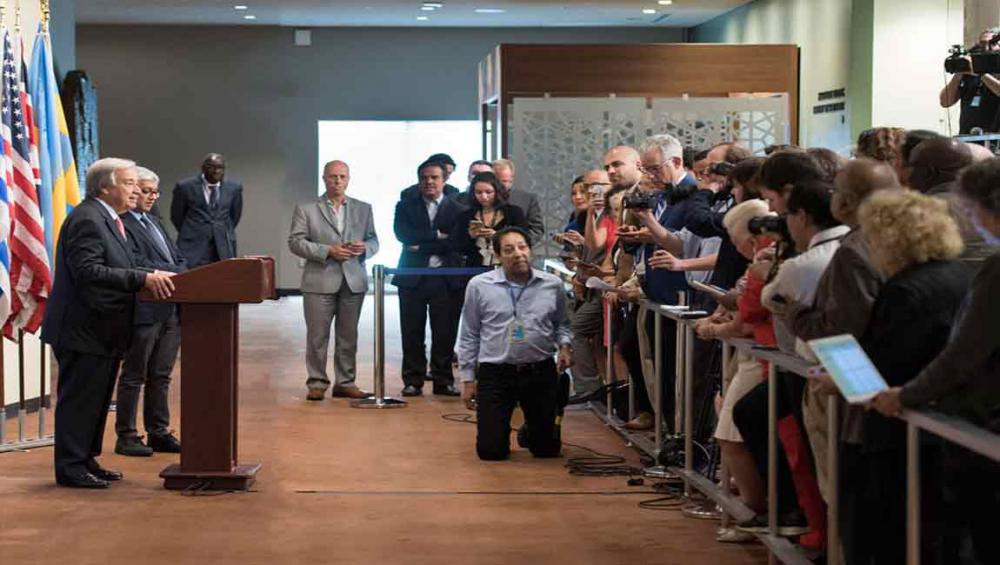Just Earth News | @justearthnews | 17 Aug 2017, 05:37 am Print

Mark Garten
Speaking to the press at the UN Headquarters in New York, the Secretary-General stressed that the solution to the crisis must be political, and reiterated that his good offices – meaning the prestige and weight that his title and the UN represent to the world community – are always available.
“I will remain in close contact with all concerned parties and stand ready to assist in any way,” said Guterres.
The message echoes what Guterres said he had told yesterday's meeting of the representatives of the Six-Party Talks, who include China, the Democratic People's Republic of Korea (DPRK), Japan, the Republic of Korea, the Russian Federation, and the United States.
Earlier this month, the UN Security Council strengthened sanctions against DPRK's exports. Unanimously adopting resolution 2371 (2017), the Council imposed a full ban on the export of coal, iron and iron ore from the north-east Asian country. Previously these items could be exported for livelihood purposes, for a limited amount.
Guterres on Wednesday said that consist with that resolution, “the international community must send a clear, coherent message to the leadership of the DPRK: fully comply with international obligations, work towards reopening communication channels and support efforts to deescalate the situation.”
He noted that the resolution sends “an unambiguous message regarding the peace and security obligations” of DPRK, while also representing “an opportunity to solve this crisis through diplomatic engagement and renewed dialogue.”
Speaking to journalists, Guterres welcomed the “continued critical engagement” by Member States and supported “the call of the Republic of Korea to the DPRK to engage in credible and meaningful dialogue.” These include steps such as confidence-building measures to defuse tension and efforts to de-nuclearize the Peninsula.
The tensions related to the crisis in the region “are at levels not seen in decades,” Guterres said.
He noted that more than three million people died in the Korean War, which ravaged the Peninsula from 1950 to 1953.
“We need to heed the lessons of history – not to repeat the mistakes,” he said.
He noted also that the potential consequences of military action “are too horrific to even contemplate.”
- ISIS-inspired plot foiled in UK: Two men get life sentences for targeting Jewish community
- India rejects allegations, urges Pakistan to tackle its ‘home-grown ills’
- Massacre in Islamabad: ISIS takes responsibility for deadly Pakistan blast
- Friday turns fatal: 31 dead, 169 injured in shocking Pakistan mosque blast
- Explosion at packed mosque in Pakistan turns Friday prayers into scene of carnage, 15 dead





-1763561110.jpg)
